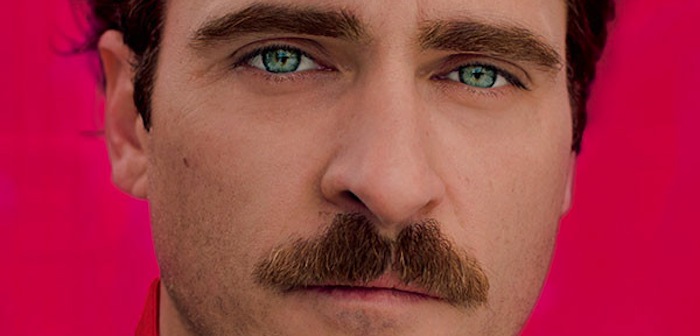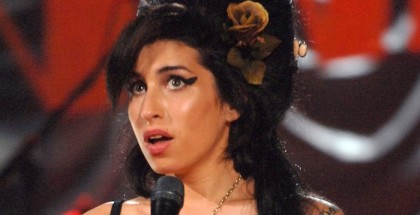VOD film review: Her
Review Overview
Humans
10Computers
10David Farnor | On 29, Jun 2014
Director: Spike Jonze
Cast: Joaquin Phoenix, Amy Adams, Scarlett Johansson
Certificate: 15
What are you doing right now? Sitting at a computer? Standing on the train? If you’re not looking at your phone this very minute, you’ve got it in your pocket, right?
Her is set in a time when operating systems learn with every pixel they process. They’re closer to people than programmes. And so everyone walks around with earpieces in their head, talking to tiny gizmos in their hands; connected, but separate; surfing, but tethered to their own little box. Users, in the addictive sense of the word.
Theodore (Phoenix) is one such person. In an age of digital communication, he writes fake hand-written letters for a living, expressing love or other feelings from one stranger to another. One day, in a bout of loneliness, he installs Samantha on his computer – and promptly falls in love.
It might sound like a heavy-handed metaphor, but writer-director Spike Jonze plays it just right, getting swept up in the rush of their connection without losing a sense of that isolation. Everything in Los Angeles is steeped in it; from the beautiful neo-landscape and IKEA-smooth sets to the downward-turned human faces, DoP Hoyte Van Hoytema (Tinker Tailor) lights the film with a hazy glow, as if perpetually gazing at a tablet screen. The electronic-tinged music from Arcade Fire, too, has a pedal note of sadness that thrums underneath the heartwarming romance – even when Samantha composes a tune and Theo plays along on the ukulele.
Joaquin Phoenix is sensational as the smitten smartphone user. His shuffling, awkward posture and retro glasses stand out from the modern crowd, while his face runs the gamut of human emotions. The fact that he manages to make falling in love with a disembodied voice convincing is an achievement. That he does so without anyone else on screen for most of the movie is incredible.
He’s given a surprising amount play with by Scarlett Johansson, whose playful, quivering voice is both enchanting and alien, airily charming but eerily free of human baggage. She dubbed in her lines over Samantha Morton in post-production and, whether it’s thanks to Morton’s interactions with Phoenix or Johansson’s vocal performance, the couple have fantastic chemistry, immediately selling their complex relationship.
Jonze’s script teases out the thorny nature of human bonds versus digital ones. Theodore’s problem, the film understands, is one of projection; he imposes ideals upon his soon-to-be-divorced wife (a frustrated Rooney Mara) but can do the same to his OS without having to worry about a clash with reality. The juxtaposition becomes weirdly apparent in a sex scene that sees a surrogate provide a body for Samantha’s voice, a moment which reveals Jonze has succeeded at the impossible; making the idea of physical, human contact seem entirely strange.
But it is not simply Twombly’s fault that leads him to love Samantha. The film highlights a more universal human element at play. Shots of commuters hooked up to their comps make it clear he’s not the only one undergoing this transition. “Play melancholy song,” he whispers in a glass elevator, surrounded by others doing the same. If it’s a wider longing in the modern age for closeness, be it a physical embrace or a technological swipe, is Samantha hooked up with other users? What does that make her and Theo’s apparently unique bond? A feat of clever coding?
Her celebrates the elation of Theo as much as his sadness, and much of it is found through the physical supporting cast. Chris Pratt as a receptionist in Theodore’s company is a hilarious, yet pertinent, reminder of the value of face-to-face communication, while Amy Adams as Theo’s best friend delivers smiles alongside an intimate shoulder to cry on. Throughout, Johansson and Phoenix’s flirting buzzes with cute excitement.
These are all characters trying to orient themselves in a world not very different to the one we know now – one where technology has already transformed our relationships with both our computers and our friends, partners and family. There is humour to the bizarre dilemmas these people encounter, even as they ring with familiar truth; the dash to find a signal when a portable device stops working is both amusing and shot through with pangs of accuracy.
That’s where Her finds its wonderfully deep resonance. What could have been a twee, oversimplified romance or a laboured anti-tech diatribe has a complexity that woos as much as it warns. This isn’t just a love story for the 21st Century – it’s a wake-up call and a lullaby in equal measure. A sci-fi that sits in a middle ground between dystopian future and utopian present, it’s a celebration and dissection of the machinery that makes humans tick.
As Her reaches its mature, understated end, Jonze lingers on a questioning glimpse at the recognisable horizon. Then, he fades out – and leaves you staring at your own reflection in a blank screen.

















